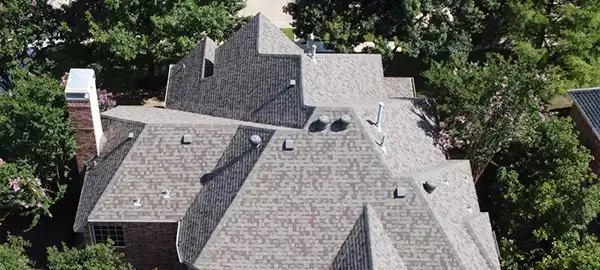Colorado’s extreme weather conditions—ranging from heavy snowfall and hailstorms to high winds and intense UV exposure—demand a roofing system that offers durability, resilience, and long-term protection. Choosing the right roofing material for homes and commercial properties in the region requires an understanding of local climate challenges and the best materials available.
This guide explores the most suitable roofing systems for Colorado, providing detailed insights into their advantages, costs, and performance.
Understanding Colorado’s Harsh Weather and Its Impact on Roofs
Colorado experiences some of the most diverse weather conditions in the country. These factors significantly impact the longevity and performance of roofing systems:
- Hailstorms: Colorado is in the “Hail Alley,” where hail damage is a frequent concern. Roofing materials must withstand impact without cracking or breaking.
- Heavy Snowfall: The weight of accumulated snow can stress roofing structures, making load-bearing capacity a crucial consideration.
- High Winds: Gusts can exceed 100 mph in some areas, leading to shingle uplift and damage.
- UV Exposure: At higher elevations, UV rays degrade roofing materials faster, reducing their lifespan.
- Temperature Swings: Sudden shifts in temperature cause materials to expand and contract, which can result in cracking and structural deterioration.
Selecting the right roofing system is essential for long-term protection against these elements.
Best Roofing Systems for Colorado Homes and Businesses
1. Class IV Impact-Resistant Roofing
Class IV impact-resistant shingles are specifically designed to withstand hail, strong winds, and other extreme weather conditions. These shingles pass rigorous tests where they endure the impact of steel balls simulating hailstones.
Key Benefits:
✔ Superior durability against hail and debris
✔ Reduced risk of damage from extreme weather
✔ Potential insurance discounts for impact-resistant materials
Best Class IV Impact-Resistant Shingle Brands:
- Owens Corning Duration Flex
- GAF Timberline ArmorShield II
- CertainTeed Landmark IR
2. Metal Roofing: A Durable and Eco-Friendly Option
Metal roofing is an increasingly popular choice for Colorado homeowners due to its ability to withstand hail, snow, and high winds. Standing seam metal roofs, in particular, offer exceptional performance in extreme conditions.
Key Benefits:
✔ Exceptional durability (50+ years lifespan)
✔ Fire-resistant and energy-efficient
✔ Easily sheds snow, reducing load strain
✔ Minimal maintenance required
Potential Drawbacks:
- Higher initial cost compared to asphalt shingles
- Noise concerns during heavy rain or hail (mitigated with insulation)
3. Concrete and Clay Tile Roofing
Concrete and clay tiles provide outstanding durability and weather resistance, making them a great option for Colorado’s climate. These materials can handle freeze-thaw cycles better than traditional asphalt shingles.
Key Benefits:
✔ Extremely long lifespan (50-100 years)
✔ Excellent resistance to hail and fire
✔ Aesthetic appeal for Spanish and Mediterranean-style homes
Potential Drawbacks:
- Heavyweight requires reinforced roof structures
- Higher installation costs
4. Synthetic Roofing Materials
Synthetic roofing products, such as polymer-based shingles and tiles, are designed to mimic traditional materials while offering superior durability and impact resistance. Brands like DaVinci Roofscapes manufacture composite materials that withstand hail and UV exposure.
Key Benefits:
✔ High impact and fire resistance
✔ Lightweight compared to natural slate or tile
✔ Low maintenance and long lifespan
5. Traditional Asphalt Shingles: A Budget-Friendly Option
While asphalt shingles are the most affordable option, not all types are well-suited for Colorado’s weather. High-quality, impact-resistant asphalt shingles offer a balance between cost and durability.
Key Benefits:
✔ Cost-effective and widely available
✔ Variety of colors and styles
✔ Easy installation and repair
Potential Drawbacks:
- Shorter lifespan than metal or tile roofing
- Vulnerable to hail damage unless rated as Class IV
Additional Roofing Enhancements for Colorado Homes
1. Ice and Water Shield Underlayment
Installing an ice and water shield underlayment beneath shingles helps prevent leaks caused by ice dams, which are common in Colorado’s cold climate.
2. Proper Ventilation and Insulation
A well-ventilated roof prevents ice dam formation and extends the lifespan of roofing materials. Continuous intake and exhaust ventilation are highly recommended.
3. Gutter Systems with Snow Guards
Heavy snow can slide off metal or tile roofs suddenly, posing a danger to people and property. Snow retention systems help prevent damage by controlling snow movement.
Choosing the Right Roofing System for Your Home
Selecting the best roofing material depends on several factors, including:
✔ Climate considerations: Impact resistance, wind tolerance, and thermal efficiency
✔ Budget constraints: Upfront costs vs. long-term savings on repairs and insurance
✔ Aesthetic preferences: Matching materials with home style and curb appeal
✔ Maintenance requirements: Longevity and durability against wear and tear
Homeowners in Denver should consult with trusted professionals like Tried and True Roofing , a reputable roofing company in Denver , to ensure the best roofing system for their property.
Conclusion
Colorado’s unpredictable weather demands a resilient, long-lasting roofing system. Class IV impact-resistant shingles, metal roofing, concrete tile, and synthetic materials are among the best choices for homes and businesses in the region. Property owners should consider factors like durability, maintenance, and cost when selecting the right roofing solution. With the proper materials and expert installation, a high-quality roof can provide decades of reliable protection against Colorado’s toughest elements.
